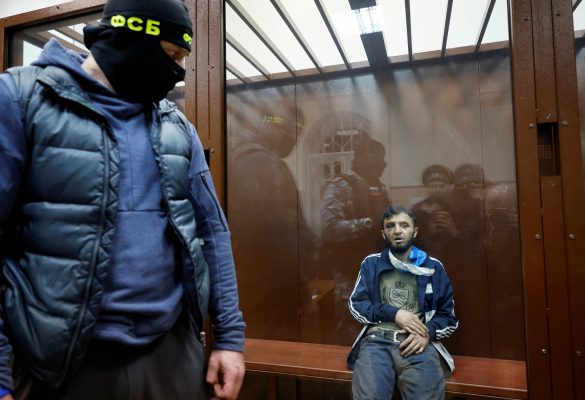When freedom reigns in Belarus, streets and squares with Soviet names will be rededicated to heroes and friends from the present and the past. I hope, for example, to see a thoroughfare named after Ivonka Survilla, president of the Rada (Council), the exiled body representing the short-lived Belarusian Democratic Republic of 1918-1919. Lithuania deserves one too, and especially its foreign minister Linas Linkevičius, who has championed the cause of democracy in his country’s southern neighbor.
But suitable public figures from big Western countries and political institutions will be in short supply. That marks a sharp decline in their prestige. Time was when Western leaders, confident in their values, championed freedom everywhere. Prague commemorates U.S. presidents Woodrow Wilson and FDR. The main highway to Tbilisi airport is named after George W Bush. Kosovo’s capital Pristina has a Tony Blair street, in gratitude for the former British prime minister’s support during the country’s independence struggle. But on the great uprising for democracy in Belarus happening now before our eyes, Western leaders have been mostly silent.
Or worse.
Take Thierry Breton, for example. The European Union’s commissioner for the single market blundered twice in his announcement of tighter sanctions on the regime in Minsk. First, he implied that the future of Belarus was chiefly a matter for discussion with Vladimir Putin. Then he continued: “Belarus is not Europe, it is on the border of Europe, between Europe and Russia”.
This shows ignorance at best, malice at worst. For the territory of what is now Belarus has been at the center of European politics for centuries. One might mention the failed uprising against Tsarist rule of 1863, an event inspired by the highest ideals of European liberalism. The Russian Revolution was a European event. So too was the Molotov-Ribbentrop Pact. And the Holocaust. And the Second World War.
To be fair, Mr. Breton was born in 1955. His formative years were the 1970s when the division of Europe seemed to many people to be set in stone. For the average Westerner, the territory behind the Iron Curtain was a mysterious grey space, forbidden and forbidding, bereft of business or pleasure. (Similarly, for the millions of people living in Soviet captivity, Western countries seemed impossibly distant and exotic).
The idea of a prosperous, civilized western Europe contrasting with a barbaric and backward East was always insulting and ahistorical. But since 1989 it has become wholly out-of-date. One of the great achievements of the three decades since communism collapsed is that Europeans of all kinds have reconfigured their mental maps. For the ex-captive nations, London, Berlin, and Paris now seem a lot closer than Moscow. How long a country was under communist rule, and what it experienced, is like asking what happened during the Hundred Years War: interesting for historians, but largely irrelevant for the present day.
Admittedly, Belarus is an exception to that happy picture. Tourists and business visitors do not flock there. Georgia, 8,000km (5,000 miles) to the east, has featured more clearly on our mental maps of Europe. This stems chiefly from Alyaksandr Lukashenka’s Soviet-era outlook and Kremlin-focused foreign policy, which sees any interest and influence from the West as a threat.
The bravery and determination displayed this month have already broken the stereotype of Belarus as a bland, boring Kremlin satrapy. It will be many years before the outside world fully remedies the indifference and ignorance of the past. But that is no reason to showcase it. Mr. Breton will be welcome to visit Minsk’s newly renamed streets. He has a lot to learn — and Belarusians have a lot to tell him.
Europe’s Edge is CEPA’s online journal covering critical topics on the foreign policy docket across Europe and North America. All opinions are those of the author and do not necessarily represent the position or views of the institutions they represent or the Center for European Policy Analysis.





